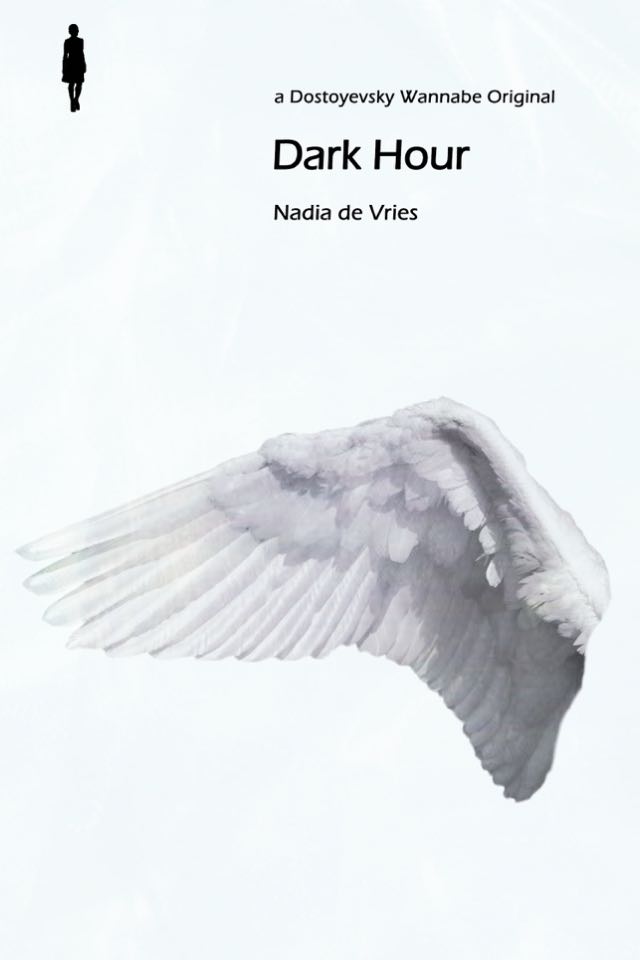Dark Hour
— Yael van der Wouden
but if a poem does not corrode
I don’t want it.
— ‘Cute as Hell’ by Nadia de Vries
For a long time I did not get poetry. And by not getting it I don’t mean that I didn’t enjoy poetry—I did, I’d enjoy it quite a lot. I just didn’t understand what it was supposed to be doing.

To clarify: when I was about nine I wrote an expansive collection of poems from the point of view of a middle-aged divorce. My parents, I’d like to add, were not divorced. The words in no way reflected my nine-year-old experience in the world. At thirteen I had to present a self-written poem in class, but what I actually did was translate a song from Hebrew that obviously no one knew and passed it off as my own. Once again, it was about a middle-aged woman lamenting the childlike ways of her lover.
Looking back, I think that for a long time I figured that poetry was a narrative medium that let you try out thoughts and feelings on for size. It took me a long time to figure out its potential as a medium for catharsis—of finely crafted words designed to stir that thing that feels like truth.
Dark Hour by Nadia de Vries crystalises that potential. The collection, the blurb says, “speaks of haunted bodies, sympathetic magic, and corrupted girlhood.” It is “a book about unlearning fear.” And indeed, in each of the poems themes such as darkness and fear are given shape in words—words that the narrator can then argue with, battle with, or dispel altogether. In ‘The Darkness’, for example, a collective we meet the darkness and proceed to
[…] point at the darkness
We laugh at the darkness
we pelt the darkness with potatoes
and tomatoes, in every accent
We throw gum at the darkness
Blow a raspberry at the darkness
The darkness turns to look at us
and we look back at her.
That last line, I tell you, does me in. The set-up is so familiar in its narrative, the personification of a fear and the raging against it—but the ending pulls the rug out from under you. I expected a retaliation, a win or a lose, but what we get instead is what fears are in essence: a mirroring of sorts. A thing that looks back at us in the same way we look at it.
De Vries has a gorgeous knack for openings and closings like this: a first line that knocks you out with a bare honesty, a confession, and a final line that flips it on its head. One of my favourite poems in the collection, ‘Take me, I’m Mine’, follows this formula like this:
All I want for in a loved one is humility and obedience.
I want to take ownership of something small,
and make it fight for me.
I read this five times in a row and still couldn’t turn the page just yet. It felt like a confession made at the end of a very long conversation—the kind of truth that only forms as it leaves your mouth, that baffles you as you say it. I wrote ‘sneaky truth’ in the margin, and then had to do a double take when I read the final poem of the collection, ‘Now That I Am a Cursed Woman’. The final lines read,
There is a cliché in everything.
That is how the truth comes in.
And that’s another thing that De Vries’ collection does so very quietly but with absolute mastery: it creates a poetic universe of sorts, a space within the book where the poems interact not by overt repetition of themes, but by the way they mirror one another. In ‘Protect Me From What I Want’ a folding chair is described as coming in six different colours, “staying, leaving, and four shades of hesitation.” It’s followed quickly by ‘Technological Sublime’, where the four shades of hesitation are fleshed out in four lines asking: “Am I clever / or am I lonely? / Am I clever? / or am I lonely?”
The poem ‘Affection is an Anchor’ talks about memory as an electric fence, whereas a few pages on ‘You Turn Yourself into an Everything’ elaborates on this nautical way of thinking about relationships with the fantastic closing line:
Men are like docks, after all.
You can leave them whenever you like.
‘Sympathetic magic’ is one of the ways De Vries’ collection was described on the back, and this is what I took it to mean: the magic used to made a person of the darkness, someone you can challenge and see it does little but stare back. Magic used to make fears into echo chambers, words bouncing in between the poems themselves.
Because at the end of the day poetry is not a costume for the reader to wear, it is not an emotion to try on for size, a kind of magic used to startle the truth out of words.
Best read: with your favourite 90s band on in the background; while eating fruit; in your underwear; right by a window.